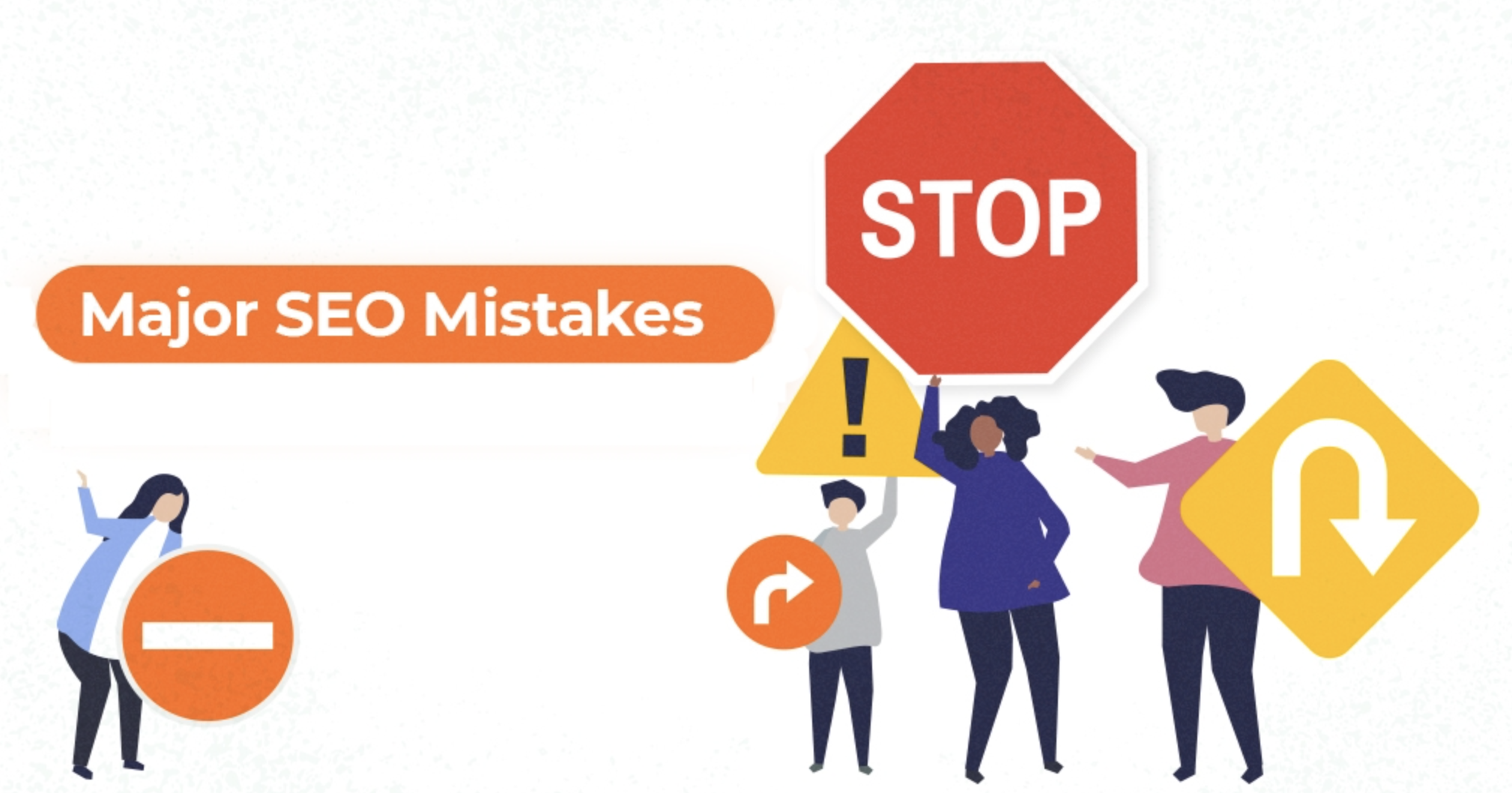Search engine optimisation should be the number one source of traffic to your website. Excellent SEO can drive a constant stream of traffic to your site without the need for advertising or paid search. But how do you know if you have got your SEO right, and more importantly, how do you know if you have made an SEO mistake?
The key to effective SEO is doing it right straight away. The results of bad SEO practices can take months or even years to show up. Amire works to ensure that your website is optimised for search engines right from the start by implementing proven, flexible solutions tailored to your business. Contact us with your SEO questions or view our full range of SEO services.
Targeting the top 10 most common SEO mistakes
1. Not knowing your audience
The key to selecting long-tail keywords that attract your customers is understanding their needs. The best marketers have an in-depth understanding of their audience and write SEO-enriched content with them in mind.
2. Not selecting the right keywords
All keywords are not made equal. The key is to target specific long-tail keywords that your business can rank for. Generic keywords are unlikely to get your business ranked anywhere near page 1 on Google.
Some mistakes with generic keywords include:
- Broad or generic keywords that have too much competition
- Keywords that get views to your site but not the right ones — you need to target keywords that get paying customers to your page
- Global keywords when your business focuses only on local customers
3. Not vetting your external links
It is a common SEO mistake to think that all links are good links, but this is far from the truth. Google ranks links according to quality. The more reputable the source, the higher the quality of the link. Google considers lots of low-quality links as spam, and they could end up getting your website penalised rather than empowered. It is far better to get fewer really good links from reputable sources.
4. Forgetting internal links
Internal links are vitally important to build site architecture and spread link juice throughout your site. Internal links help your website by:
- Spreading link juice — consider link juice as a measure of how much power a backlink passes onto another site. High-authority sites have more link juice than low-authority sites.
- Reducing bounce rate and increasing page views by increasing the time visitors spend on your site and nudging them towards other relevant content
- Assisting Google in crawling your site and indexing pages
5. Not using correct anchor text on your internal links
A common SEO mistake is placing a link that is not anchored by relevant words. For example, if you want to link to an SEO service page, a link should be placed on the words “Search Engine Optimisation Services” rather than “Click Here”. The anchor text should be relevant and descriptive, allowing your user and Google to navigate your site with ease.
6. Not including the correct page title tags and metadata
When a person searches on Google, your title tag and meta description are what show up in the search results. For example, a person searching for “Amire” will see this:
AMIRE Digital Marketing Services – SEO, PPC, Social Media …
Welcome to AMIRE! We are digital marketing specialists focused on SEO, paid advertising, local optimisation and social integration. Come on in!
Every page on your website should have a unique meta title that carries your company name and the purpose of the page. Additionally, every page should have a meta description that accurately represents what the page is about and sounds attractive enough to entice a customer to click.
7. Writing poor copy
The adage that content is king is still worth living by. Long-form content that answers a problem will always rank well. Check unique content throughout your site.
8. Not analysing your data to find out what is working
There is a multitude of analysis sites where you can see exactly what is working for your website and what SEO mistakes you are making. Use these sites to find out what keywords are popular, where your audience comes from and what effective strategies competitors are doing that you aren’t.
9. Having a slow website
You could have nailed the content and the keywords and have people flocking to your website in the hundreds, but a slow, glitchy site is a sure turn-off. Invest in a good hosting provider and keep a clean, lightweight design to keep your website fast and fluid.
10. Not having a mobile-friendly website
Today, most users browse websites by mobile phone. And since 2018, Google has been using mobile-first indexing. Websites that are not designed with mobile or tablet users in mind will struggle to gain traffic and attain top rankings.
If you have made some of these common SEO mistakes, you may be struggling to understand how you can optimise your site effectively. The best solution is to approach a company for an SEO audit to see what you can improve. Fixing your onsite SEO is a prudent investment that will enhance your ranking, traffic and conversions.









